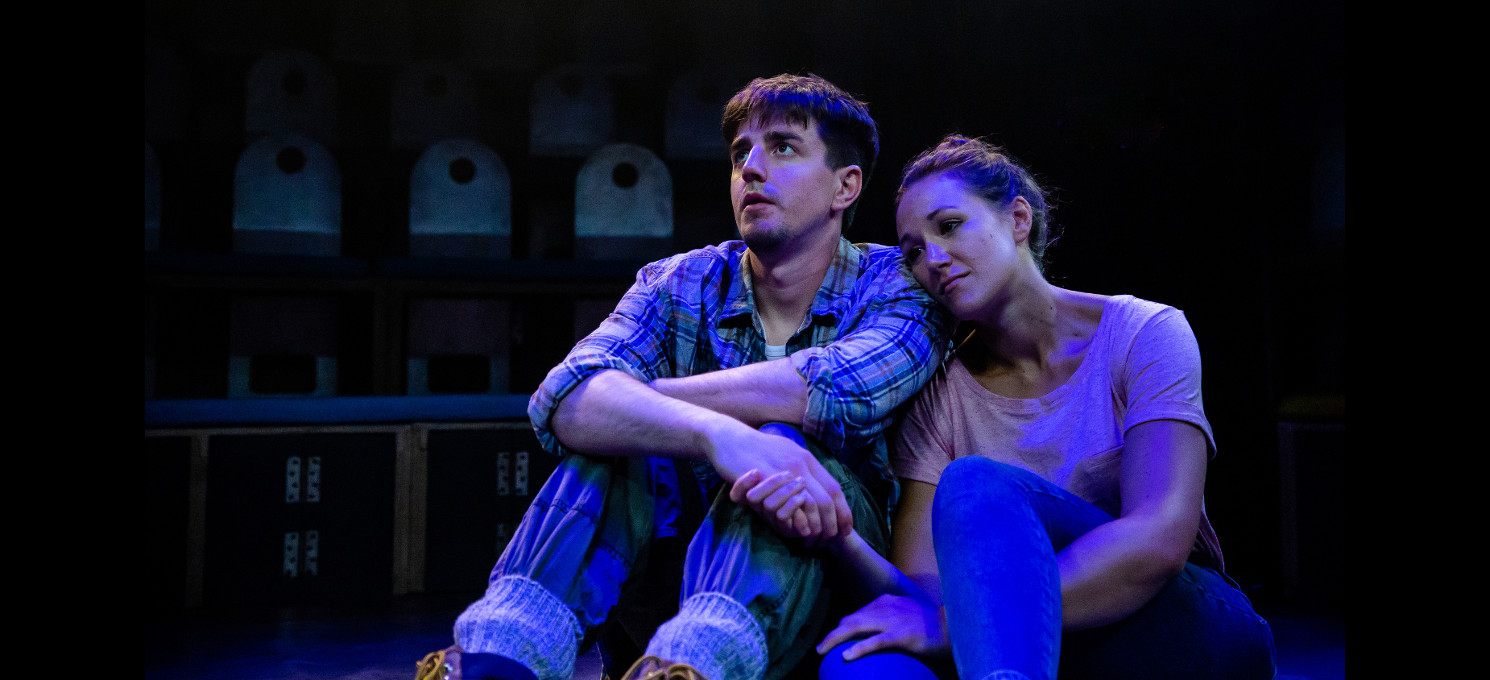‘What you think’s a completely different plant on surface – it’s all from the same roots.’
What is it about your first love? That overwhelming intensity that makes you feel as though you own one another? It is this possessiveness, this feeling of being tied to someone, that Charley Miles’ Blackthorn communicates so sweetly and so simply.
The production, held at the Leeds Playhouse and followed by a conversation with associate artist Stef Smith, marked a memorable debut for up-and-coming Miles, who has been named this year’s playwright fellow at Paines Plough. Miles has also won the prestigious Susan Smith Blackburn Prize and was last year’s Channel 4 Writer in Residence at the Playhouse.
Blackthorn first premiered at the 2016 Furnace Festival, and has returned this year to grace the festival once more. It is no surprise that 2016’s actors Charlotte Bate and Harry Egan have been asked to return to play the same roles this time around. In this effortlessly composed, two performer show, Bate is the real stand out. Her facial expressions and comic timing perfectly execute Miles’ fast witty dialogue. However, that is not to say that Egan is not also impressive in his role as a stoic, practical farm boy. The play follows the lives of the only two children born in their village for twenty years, and shows how their roots continue to bring them together again and again long after the pressures of adult life get between them.
In such an intimate setting as this one, I am often painfully aware of the acting. Partly in credit to Miles’ writing (which is equal parts lyrical, regional and genuine) and partly in credit to the tangible chemistry between Bate and Egan, I forgot that I was watching a play.
Poetic and personal in the way that it is told, Blackthorn feels like a play written from true heartbreak, and makes us question whether its roots lie in reality or nostalgia. When Stef Smith asked Miles, post-show, to give us a percentage of how much of the play was autobiographical, the nods in the audience confirmed I was not the only one wondering this. The answer, in case you were wondering, was a cryptic ‘50% of the things actually happened.’ Whether they happened to her, or to one of the members of her hometown from whose lives she has, in her own words, ‘pilfered so much,’ we can only guess.
Although the set is bare, this is by no means an austere production. The warm golden and orange light that bathes the stage creates a warm and homely feel. This is very much a play about home and roots. While Blackthorn spins an interesting commentary on gentrification and the evolution of rural farming towns, it is the not-quite love story that is the most touching. For the two characters, ‘home’ is not only the small village where they grew up, but something that lies within each other. Blackthorn is a stunning debut that will resonate with anybody who has ever had a teenage love.
Helen Woodhouse
Image Courtesy of Leeds Playhouse

